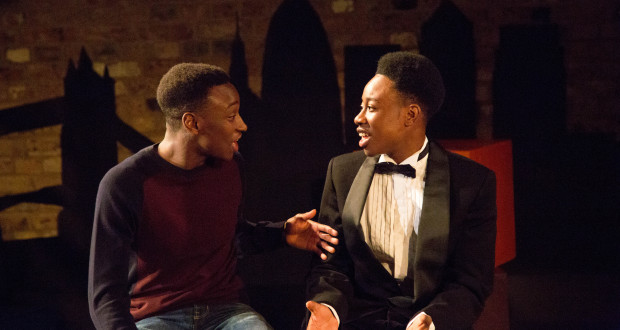Pros: A great theatre that is current and on beat. A young and vibrant cast who are performing a meaningful piece.
Cons: A surface level narrative and half-hatched ideas. Characters and plot need work to help the audience empathise.
Summary
rating
Poor
East End Boys, West End Girls is a classic case of a premise that gets ahead of itself, forgetting to surround itself with substance or nuance. At its root, it strives to make important points about racism and class: how they are divisive and how difficult they are to break through. But beyond this root, nothing seems to grow or prosper. The concepts are lobbed at the audience with a heavy hand and left there, resting, with nothing added in the way of sentiment or empathy to help the message sink in and have any real take home value.
The plot is fairly basic in itself: two sets of teenagers live at opposite ends of the River Thames. They are not only opposite geographically, but also with opposing ethics, social standing and views of the world. Tobi and Olly are from the wrong side of the river, the East side. Having grown up on an estate, the community they are used to is both dangerous and fiercely loyal. They stick together. Bali and Katie are from the West side, a stone’s throw from the King’s Road, with opportunities begging at their feet. They face the inherent danger that all plethora of opportunity brings: taking them for granted, or losing sight of that which actually matters. All four teenagers have taken a scholarship exam in a west end school. The scholarship means different things to each of them. That causes wires to cross as the four characters grapple with identity, opportunity, loyalty and belonging. The simplicity of the plot isn’t the issue with East End Boys, West End Girls. The problem is how that plot develops within the script, or in this case, doesn’t develop within the script.
It feels as though Ade Solanke has cut almost every corner. The scholarship exam plot device is insubstantial and doesn’t allow itself enough of an insight into the backgrounds of the teenagers. The majority of the narrative is separate duologues, the boys do one, the girls do one, the boys do one… and predictably it goes round. The boys talk about their endz, the girls about shoes and boys, neither with enough substance to fully engage the audience. By the time the apex of the script is reached, the audience is so lulled by this rhythm that it’s hard to drum up enough empathy for the characters.
After the show, I was left with the feeling of wanting more, as though I should have thought something or felt something that just didn’t really happen. The Arcola, though, has enough atmosphere to perk up the spirits. The bar is trendy enough on it’s own and the arancini dinner can only add to the theatre experience.
Author: Ade Solanke
Director: Ade Solanke
Producer: Spora Stories
Box Office: 02075031646
Booking Link: https://www.arcolatheatre.com/production/arcola/east-end-boys-west-end-girls
 Everything Theatre Reviews, interviews and news for theatre lovers, London and beyond
Everything Theatre Reviews, interviews and news for theatre lovers, London and beyond



